CEATEC AWARD 2015Technology Innovation Category
-
-
CEATEC AWARD 2015
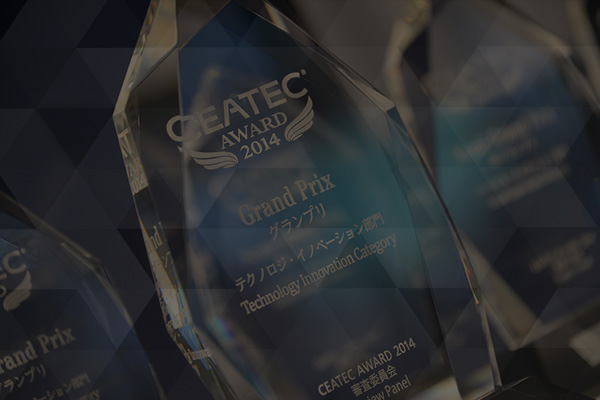
- Awards are given to technologies, products, services, and systems on exhibit that exerted outstanding potential in innovation.
-
-
-
The CEATEC INNOVATION AWARDS, "As Selected by U.S. Journalists"
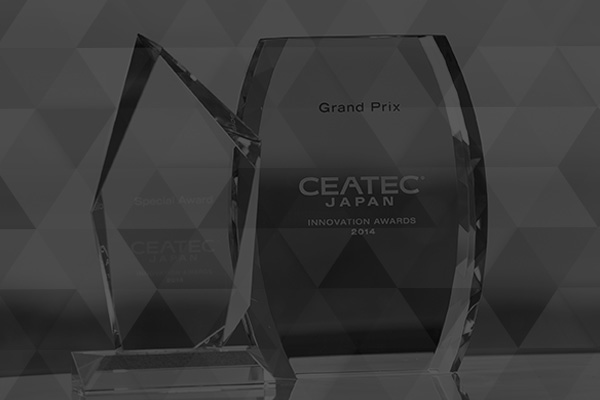
- US Journalists in the IT and consumer electronics fields will select and award exhibits for their innovativeness and potential impact in the US market.
-

CEATEC JAPAN 2015 held CEATEC AWARD 2015 under this year's theme of "NEXT — Today’s Dreams, Future Realities” with the aim of contributing to the creation of markets and advancement of the IT and electronics industries. This press release announces the Grand Prix and Semi Grand Prix winners in each category decided through the rigorous scrutiny of the CEATEC AWARD panel of judges. The panel also decided on the Special Judges’ Award for a product strongly recommended.
Grand Prix
TDK Corporation
IC built-in Circuit Technology SESUB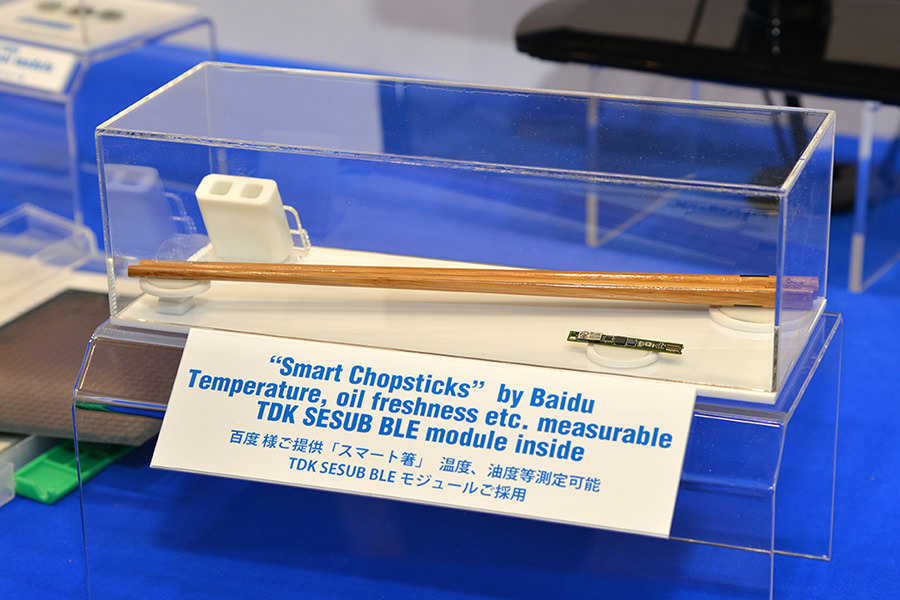
- Product description
SESUB is module substrate manufacturing technology for mounting electronic components on plastic substrates built-in to IC chips. Built-in IC devices already commercialized include Bluetooth modules and smartphone power management modules. Compared to conventional products made with discrete components, building parts into IC substrates enables 60% more miniaturization and hence enables modules that are in the world’s best class for compactness and low profiles.
- Comment on the selection
These modules meet world’s highest standards for semiconductor compactness and profile. Compared to conventional discrete components, this system achieves miniaturization with up to 83% area ratios. The technology holds promise for expanding and promoting IoT applications such as wearable devices.
- Exhibition Venue
- Key Technology Stage
- Exhibition Hall
- 5
- Booth Location
- 5K77
Semi-Grand Prix
Rohm Co., Ltd.
“Lazurite Fly”― A Flying Paper Crane with Ultra-Lightweight, Ultra-Energy- Saving Microcomputer Board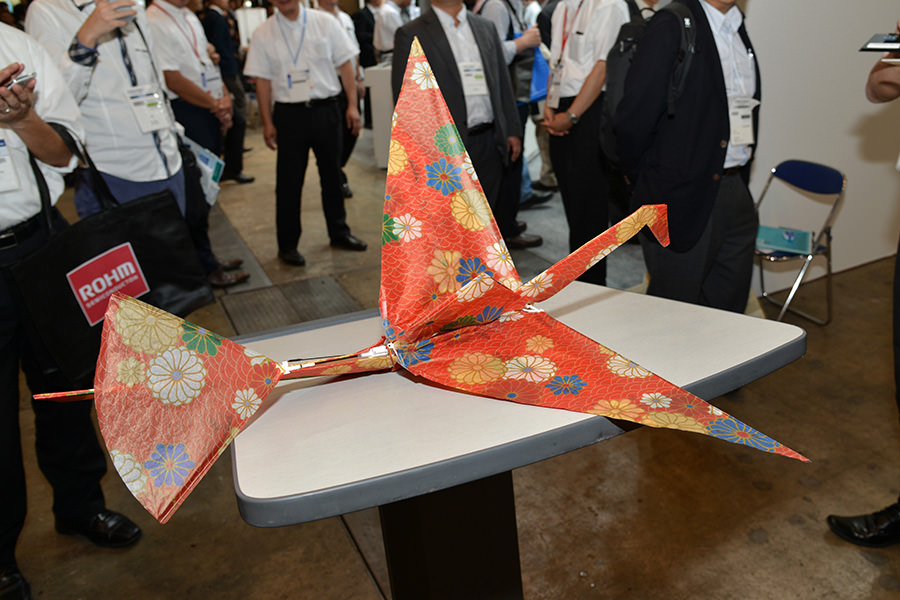
- Product description
This device uses the Lazurite Fly ultra-lightweight/low-energy microcomputer board developed by Lapis Semiconductor of the Rohm Group. Shrunken down to the size of an SD card, this is a wireless communications IC sensor and motor driver mounted in a traditional Japanese origami crane, to produce an object that flies by radio control, but weighs a mere 31g.The device is an expression of cutting-edge manufacturing fused with the traditional culture. The crane flew gracefully 6 meters in the air around the Rohm booth at the venue.
- Comment on the selection
Featuring an ultra-lightweight, low-energy microcomputer board, this paper crane was created to appeal to its lightness and also attracted attention.
- Exhibition Venue
- Key Technology Stage
- Exhibition Hall
- 5
- Booth Location
- 5K20
Sharp Corporation
FFD (Free-Form Display)/FFD-UI (Free-Form Display―User Interface)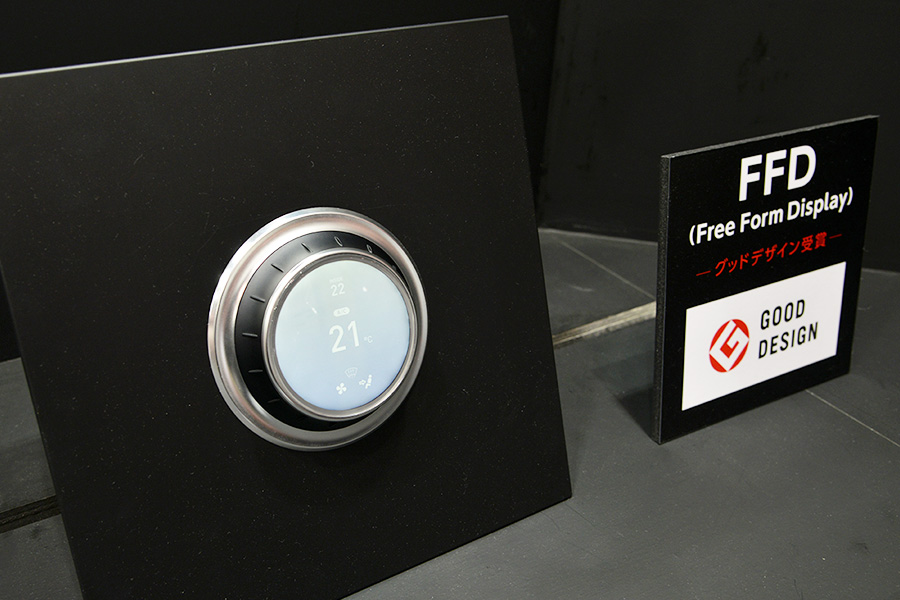
- Product description
In a major departure from conventional thinking, Sharp has developed this new “Free-Form Display” display proposal. Applying the company’s IGZO technology and establishing unique circuit design methods for distributed arrangement of a gate driver within pixels makes it possible to create extremely fine picture frames in displays, and also freely design display shapes. Additionally, by combining technologies such as sensors, this technology enables the creation of new and interactive user interfaces that can be operated by touching the edge of the screen.
- Comment on the selection
Sharp, who has pursued display resolution and size, has presented the possibilities for flexible shapes and has shown new and challenging directions.
- Exhibition Venue
- Lifestyle & Society Stage
- Exhibition Hall
- 1
- Booth Location
- 1L11





































